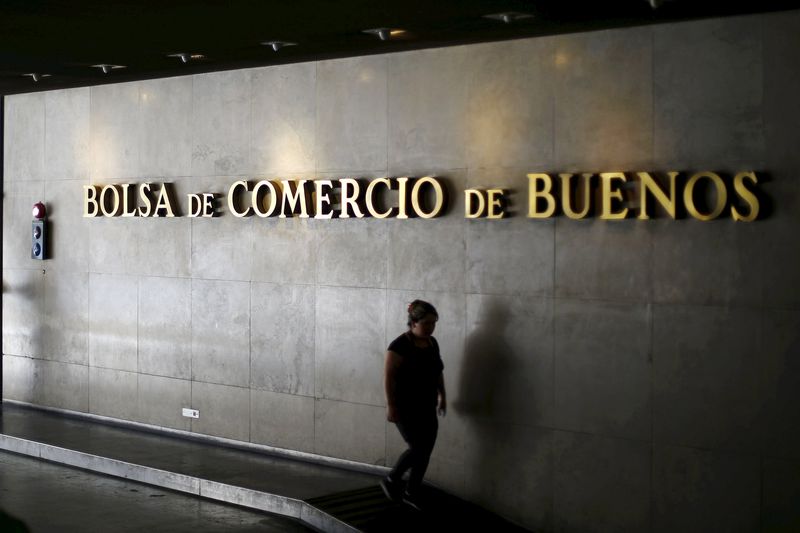By Tom Arnold and Marc Jones
LONDON (Reuters) - Concerns about Argentina adding to its long list of sovereign defaults swirled on Tuesday, as investors continued to digest the heavy defeat of pro-reform President Mauricio Macri in the country's primary elections at the weekend.
Credit default swap prices from data provider IHS Markit showed five-year credit default swaps (CDS) marked at 2,116 basis points, up from what was already a five-year high of 1,994 bps the previous day. At those levels, the probability of a default within five years is estimated to be between 70% and 75%.
Argentina last defaulted on its debt in 2001, an event which sparked years of recessions and economic crises.
Bank of America (NYSE:BAC) Merrill Lynch's Claudio Irigoyen, who used to be the chief economist at Argentina's central bank, cautioned of a worsening outlook as well.
Not only are analysts worried about the economic plans of Alberto Fernandez, the moderate Peronist candidate who romped to victory in Sunday's polls, but also about how a transition of power ahead of October's national elections could potentially occur.
"I think the economy will sink even more, contracting 2% this year with inflation going to 50%," Irigoyen said in a note. "And likely next year... the probability of default will jump to 50% at least."
Macri's trouncing in the polls made him the latest pro-free market, pro-reform leader to be battered by a populist rival.
Fernandez has said he would seek to "rework" Argentina's vital $57-billion standby agreement with the International Monetary Fund if he won October's general election.
Monday's market rout was brutal. The peso lost 15% of its value and Argentinian equities (MERV) sank 48% in dollar terms - the second-biggest one-day slump anywhere since 1950 - while the bond market crash saw a 100-year bond issued to much fanfare two years ago tumble 20%.
Even if markets haven't yet fully priced in a full-blown default, traders are betting on a massive hit to the country's credit rating at the very least.
An S&P Global model using CDS data shows at least a four-notch ratings downgrade now being priced in, from the current level of B to CCC-.
"To sell or not to sell?" Morgan Stanley (NYSE:MS) asked in a note to clients referring to Argentina's bonds.
"Despite the already substantial fall in bond prices, we expect further downside pressure and volatility, and move to a dislike stance on hard currency bonds," they said, adding that prices could fall below 55 cents if markets begin to freeze up.
Foreign investors hold a substantial US$109 billion worth of Argentinian bonds, including EM-dedicated funds being 'overweight' on Argentina by 2.3%, they pointed out.
This "also makes for an even more challenging trading backdrop."
